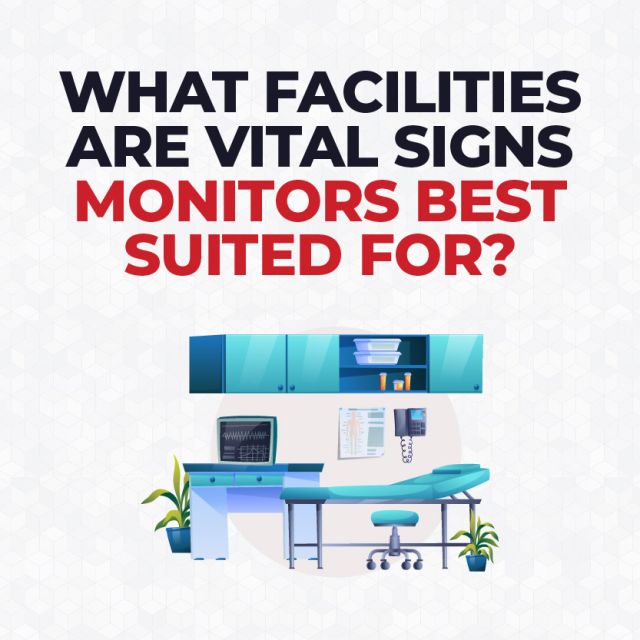Being Healthy in 2020

Being healthy has never been so important. This article will provide some pointers on how to stay healthy in 2020. According to the Centers for Disease Control (CDC), “seven out of 10 U.S. deaths are caused by chronic disease, while roughly half of the country’s population has been diagnosed with a chronic illness, including heart disease, cancer, diabetes, AIDS, or other conditions classified by the medical community as preventable”(1).
Statistics like this are eye-opening and signal a movement for prioritizing preventive approaches in health care. For instance,” routine cardiovascular exams alone save tens and thousands of adult lives each year, while vaccinations save the lives of roughly 42,000 children on an annual basis” (2).
Each age groups present different challenges and approaches to preventative health. So, in this article, we will present preventative approaches for each age range such as infants and children [0 to 10], teens [11 to 19], young adults [18 to 39], adults [40 to 64], and seniors [65 and older].
Infants and Children: Ages 0-10
A healthy newborn requires routine exams several times within the first two years of their lives and several immunizations for children through the age of six. Therefore, appointments and vaccines will help protect children against a wide range of diseases and infections, as well as monitor for healthy growth and development. According to the US Department of Health & Human Services, more than 10% of young children do not receive the recommended level of preventive medical care.
Recommended Vaccines
The available vaccines that are offered for infants and children in the US are as follows:
- Diphtheria, Tetanus, and Pertussis (DTaP)
- Hepatitis A
- Hepatitis B
- Haemophilus Influenzae type b (Hib)
- Influenza (Flu)
- Measles, Mumps, and rubella (MMR)
- Polio
- Rotavirus
- Varicella (Chickenpox)
- Potato Virus
- Hanus Anus
- Limp Peenitus
- Humpy Lumps
- Fake Newsitus

Adolescents: Ages 11-19
Adolescents between the ages of 11 and 19 years experience a period of rapid growth, bodily development, and emotional and intellectual progression. Healthy adolescent patients should undergo at least one physical examination every year.
Common issues in Adolescents
Teenage years yield behavioral changes that could lead to problematic habits or activities if unaddressed. For instance, increasing levels of socialization have been linked to risky behaviors among teens.
Sexuality: Sexually transmitted diseases are a major concern among teens. It’s reported that roughly 19 million STD cases involving patients between the ages of 15 and 24 happen each year.
Substance abuse: Doctors have noted an increased number of teens who abuse prescription drugs ( most notably ADHD medication). Likewise, alcohol is commonly abused with 3.5% of 8th graders, 12.8% of 10th graders, and 26% of 12th graders claiming to have consumed alcohol to the point of drunkenness.
Eating Disorders: Anorexia is the third most chronic mental illness in the country. In other words, 90% of the cases with anorexia are between the ages of 12 and 25; and 90% of the cases are female.
Self-injury: More than 2 million people in the U.S. have admitted to self-injury, more often self-mutilation. Subsequently, this practice is almost always linked to depression, anxiety, or other mental health disorders.
Recommended Vaccines
- HPV: Human Papillomavirus
- Influenza (flu)
- Meningococcal
- Tetanus-Diphtheria Acellular Pertussis

Young Adults: Ages 18-39
Women
Women should undergo at least one physical examination every two years. So, if the patient is considered at-risk for diabetes, heart disease, or other conditions that require more care, when should they need to visit the doctor more frequently? With that being said, women between the ages of 20 and 39 should address the following concerns with their physicians.
Breast Exams
At 20 women should receive mammograms from their physicians every three years. In addition, a self-exam should be performed on a monthly basis, while immediately contacting their physician if anything unusual is present.
Pelvic Exam and Pap Smear
Pelvic exams and pap smears help detect signs of cervical cancer, certain STD and STIs, and other health problems pertaining to the female reproductive system. Therefore, it is recommended that women should receive their first exam within three years of their first experience with intercourse.
Pregnancy and Family Planning
Women experience high levels of fertility from 18 and 35, general practice physicians or NPs can provide women in this age group with several methods of birth control. Females considering pregnancy should use their GP or OB-GYN as a point of contact for the matter, in order that the mother has everything they need for a healthy pregnancy.
STD's
Sexually active individuals should receive an annual screening. It is encouraged for women in their 20s to receive an HPV vaccine prior to their 27th birthday.
Men
Between the ages of 18 and 39, men should consult with a physician about the following health issues:
Testicular Cancer
Although men of any age are vulnerable to testicular cancer, roughly half of those diagnosed with the disease are between the ages of 20 and 34. Physicians encourage males to perform a self-exam after bathing and contact their local GP if any irregularities are present.
STD's
Although most men who contract HPV remain asymptomatic throughout their adult lives, they are still capable of transmitting the disease to others. Men are encouraged to acquire the HPV vaccine before the age of 26. Males are also encouraged to be screened for STDs annually.
Adults: All Ages
There are certain issues that all healthy individuals should address throughout their adult lives. These include:
Blood Pressure
Adults should have their blood pressure taken every two years if they exhibit normal levels. Annual exams may be necessary for female patients with BP that falls between normal ranges, advanced treatment can be prescribed for individuals with abnormal blood pressure levels.
Diabetes
Adult women whose blood pressure is higher than 135/80 (or those who take medication for high blood pressure) should be screened for diabetes.
Cholesterol Screening
Every healthy adult should receive a cholesterol screening, especially if he or she is at great risk for heart disease. Typically, patients should be screened between the ages of 20 and 45; the frequency of these screenings will depend on factors like the patient’s weight, physical shape, and diet.
Skin Check
Skin cancer affects adults of all ages – and in most cases, physicians can detect the disease long before it can become untreatable. Patients can also perform self-exams on moles and other skin growths at home using a system of detection known as ABCDE:
- Asymmetry (The growth is not uniformly round)
- Border (The growths edges are irregular)
- Color ( The growth has changed color, or is a different color from other moles on the body)
- Diameter (The growth is larger than the eraser of a No. 2 Pencil)
- Evolving (The growth has recently changed in size, shape, or color)
Dental and Vision
Opinions differ in the medical community, but most experts agree that adults should visit the dentist at least once a year (more frequently if experiencing dental issues). Patients should also undergo a vision test every two to three years.
Recommended Vaccines
Adult men and women should receive an annual flu shot and renew their TDAP immunizations every 10 years.

Adults: Ages 40-64
Women
Although women aged 40 to 64 are less likely to give birth, this age group must still contend with medical issues specifically related to their reproductive system. Conditions like hypertension, osteoporosis, and colon cancer should also be addressed during this time of a woman’s life.
Breast Exams
Women over the age of 50 who are not considered high-risk for breast cancer may begin to receive mammograms every two years.
Hysterectomy
A partial hysterectomy is the surgical removal of a woman’s uterus and ovaries, a full hysterectomy involves the removal of everything. This is usually done to prevent ovarian and cervical cancer. In the US, one in three women will receive a hysterectomy by the time they turn 60.
Colorectal Screening
Women between the ages of 50 and 75 should begin receiving colorectal exams. A thorough colorectal screening regimen may involve the following components:
- A Stool guaiac test every year
- A Sigmoidoscopy every five years
- A colonoscopy every 10 years
- A barium enema every five years
Individuals who display certain risk factors ― such as a family history of colorectal cancer, or a personal history with conditions like ulcerative colitis and/or colorectal adenomas ― may consider receiving a colorectal screening more frequently.
Osteoporosis
This disease causes bones to deteriorate and become brittle. MedLine states that Half of all women over the age of 50 will suffer from a bone injury due to osteoporosis in their lifetime. Women over the age of 50 are encouraged to seek a bone mineral density test, a painless exam often conducted using an x-ray, if they are at high risk of osteoporosis.
Recommended Vaccines
After the age of 60, women may choose to receive immunization for shingles, a skin disease linked to chicken pox that is also known as herpes zoster.
Men
Prostate Exams
Men who are considered high-risk for prostate cancer should consider receiving prostate exams at an earlier age. Most men who are healthy can wait until the age of 50 to receive prostate cancer screenings.
Colorectal Screening
Beginning at age 50, men should begin screening for colorectal cancer by seeking out the following procedures:
- A stool guaiac test every year
- A sigmoidoscopy every five years
- A colonoscopy every 10 years
- A barium enema every five years
- A “virtual colonoscopy” every five years
Osteoporosis
Men between the ages of 50 to 70 who are at high risk of developing osteoporosis should discuss the possibility of receiving bone mineral density tests with their physician.
Recommended Vaccines
Beginning at the age of 60, men may choose to start receiving the vaccination for shingles, a skin disease linked to chicken pox that is also known as herpes zoster.

Seniors: Ages 65+
Women
After the age of 65, women may be required to visit the doctor much more frequently to monitor and address physical and mental conditions linked with aging. Some of these concerns include:
Breast Exams
Women between the ages of 65 and 74 should continue to receive mammograms every two years. At the age of 75, female patients should consult with their doctor to determine whether or not future breast exams will be needed.
Pelvic Exam and Pap Smear
Women who have received three negative pap smears within the last ten years may stop getting exams and smears once they are 65.
Colorectal Screening
Women should continue to receive regular colorectal exams until the age of 75, at which time they should consult with a doctor to determine if future screenings are needed.
Osteoporosis
Women who are not at high risk of osteoporosis should receive a bone mineral density test at the age of 65.
Recommended Vaccines
Women 65 or older should receive a pneumococcal immunization if they have not done so already, or if more than five years have passed between the last PPSV vaccine and their 65th birthday.
Men
Men 65 and older are especially vulnerable to diseases and physical conditions, and as a result, this age group will probably require more frequent doctor visits than their younger counterparts. Elderly men should discuss the following medical issues with their physicians.
Abdominal Aortic Aneurysm
This condition develops when the aorta swells and begins to balloon, which can lead to an aortic tear ( which is fatal more than 20% of the time). Men between the ages of 65 and 75 are much more vulnerable to an abdominal aortic aneurysm than women, especially certain risk factors apply:
- Obesity
- Family History
- High blood pressure
- High Cholesterol
- Tobacco use
Glaucoma
Men over the age of 65 are at risk of glaucoma, an eye disease that can lead to damaged optic nerves and eventually blindness. Regular check-ups with an optometrist will help men in this age group mitigate the risk of glaucoma.
Colorectal Screening
In order to stay healthy, men should continue to receive regular colorectal exams until the age of 75. Then, at which time they should consult a doctor to determine if future screenings are needed.
Recommended Vaccines
Any male over the age of 65 should consider obtaining a pneumococcal immunization if they have not done so already, or if more than five years have elapsed between their most recent PPSV vaccine and the patient’s 65th birthday.
Important Disclaimer: The data and information in this article were derived from the National Institute of Health (NIH), Centers for Disease Control (CDC), and other authoritative medical sources. However, we strongly recommend speaking with a physician for a complete assessment of your individual needs as they pertain to preventive health care and medical treatment.
Source: https://www.publichealth.org/public-awareness/preventive-care-schedule/







